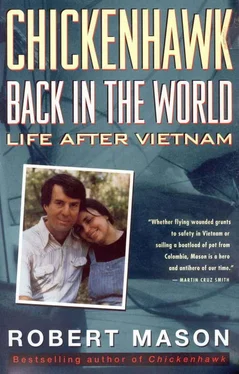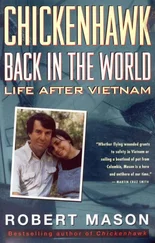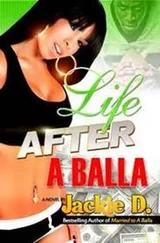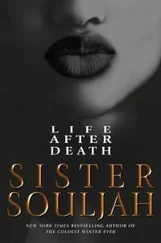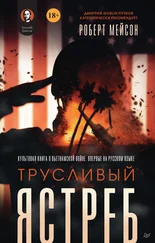I sent a copy of the manuscript to Bill Smith in California. A week later, he sent me back a two-page letter pointing out a few weak points, but saying, “If this is science-fiction, then I love science-fiction.” He said that I might try writing a new opening chapter that would introduce the location of the story and some of the main characters more gradually than I’d done.
I agreed with Bill’s suggestion about a new opening chapter. I called Knox and told him to withdraw the book. I was rewriting it.
A month later, I sent him the new version. Gerry Howard said he wanted to read it, and did, and rejected it a second time. This writing business is not a piece of cake.
Months went by. I was getting the same kinds of rejections: I like it, but it has nothing to do with Vietnam. With Chickenhawk , they’d said no one wanted to read about Vietnam; now everybody did. It looked like I had to write about Vietnam or nothing.
Even if I was not having much success being a writer, I acted like one. I enjoyed being around writers. Mike Costello, the writer who’d cut firewood for Patience while I was gone, and his wife, Patti, were now two of our best friends, and we saw them almost every Saturday night.
I met Padgett Powell (who wrote Edisto ) at a reading I gave at the University of Florida. I met Jack C. Haldeman II, a science fiction writer, and through him, his brother Joe Haldeman, the author of a science fiction classic, The Forever War . These three guys lived in the Gainesville area and became my friends.
Padgett liked my robot story well enough to recommend that I teach his writing class at the university while he took a year’s sabbatical. The writing faculty at the university vetoed that idea, saying I was too commercial. I knew what they meant. I’d gotten a degree in fine arts, majoring in photography. During my art school days, we were taught that anyone making money selling their work, not in galleries, was highly suspect of not being a fine artist at all, but an illustrator, a common tradesman like Norman Rockwell. Writing popular books, for many members of the literati, borders on prostitution.
The accumulation of rejections, being considered too commercial by the academics, and the fact that I was running out of money were making me depressed. I left Solo to wander around New York to find a publisher while I began research for a book I wanted to write about Arabia.
A group of Vietnam veterans at the Union Correctional Institution, a very serious state prison near Raiford, Florida, invited me to give a talk to their group. Reluctantly, I agreed. I brought Patience with me. The idea of going into this prison was daunting. Raiford is not Eglin. It is surrounded by high walls, guard towers, and barbed wire. Our escort said the average sentence there was life. I enjoyed talking to the prisoners, but was very happy to leave. I found the place scary as hell.
On the drive home, Patience told me that one of the inmates had said he wished his wife had been as understanding as she—it might’ve kept him out of prison. It made her cry. She decided that she’d write a book for the wives of Vietnam vets, called, she announced in the car, Vietnam: A Woman’s Guide .
She wrote a proposal immediately. I was happy to see her doing it. She’s a great writer, and somebody in the family had to publish a book. She sent her idea to Knox, who sent it on to Gerry Howard, the editor who hates robots, and damn if he didn’t buy it. He offered Patience an advance of fifteen thousand dollars, twice what they’d given me, and she was ecstatic. So was I, but why did he give her more than me? Knox sent a note later saying, “Jeez—don’t let this Viking Penguin business go to Patience’s head! Keep her in the kitchen as much as possible…”
Joe Haldeman and his wife, Gay, were visiting us at the cabin one afternoon soon after Patience sold her book. The chatter was happy. Joe had just sold his sixteenth book, Tool of the Trade ; Patience had just sold her first. I lurked in the corner forcing smiles when they looked my way. It’s tough being around successful people when you aren’t, especially if you claim to be in the same profession. They’d poured some champagne to toast their successes. I declined because, I said, champagne gave me a headache. As they drank their goddamn champagne, the phone rang.
It was Knox. “I’ve got some interest from Putnam, Bob. I’ll know in an hour. How do you want to get paid?” He meant did I want all the advance at once or did I want to break it up into payments. My heart was beating wildly in my throat. I said I’d like installments.
I had a glass of champagne, and in half an hour Knox called back and said it was a deal. Lisa Wager, a senior editor at G. P. Putnam’s Sons, a very discerning and intelligent woman, who obviously had great taste, loved Weapon .
Finally, after ten years of trying, Solo lived.
While Weapon was still an unedited manuscript, it was optioned by Twentieth Century-Fox to be a movie. Knox sold it to publishers in England, Japan, and Germany. In a few months, I’d gathered in a whole bunch of sheaves, as they say.
The book wasn’t a best-seller, but the reviews were great. The New York Times (which did not consider it science fiction, but a technothriller), said “Put it at the top of your list” and later included it in their list of notable books for 1989. What did Gerry Howard know about robots, anyway? I had broken the one-book barrier.
Patience’s book came out as Recovering from the War: A Woman’s Guide to Helping Your Vietnam Vet, Your Family, and Yourself in 1990. Viking sent her on a book tour. I went with her and got some of the writer’s perks I’d missed while I was in jail. We were on the Today Show together and stayed at posh hotels in twelve cities all over the country. Patience is now working on a new book.
Jack, now twenty-eight, is a musician. His group, NDolphin, was very popular in the Gainesville area until they broke up. He writes all of his songs, a talent which Patience and I assume he inherited from us, but he also writes and plays his own music, something that is totally mysterious to two people who can’t carry a tune in a bucket.
I’ve written Solo , a sequel to Weapon , and this book you are now reading.
In March 1989, the U.S. Parole Commission released me from their supervision, and in May the Florida Office of Executive Clemency sent me a piece of paper entitled certificate of restoration of civil rights.
Officially, I am just like everybody else. Back in the world.
I’d given quite a few talks at universities, been included in a BBC television program on helicopters; but I’d never given a talk to my peers, the pilots who flew in Vietnam, the ones I wrote about.
I am a member of the Vietnam Helicopter Pilots Association, the VHPA, which now has over six thousand members. I went to my first reunion at their annual meeting in Washington, D.C., in 1987.
Almost no one in the association mentioned my felonious past except one former captain who said he hoped I’d learned my lesson. I said that I had: get a faster boat. He didn’t like that. There were, in fact, several members who thought that, though my book was good, I was still a drug smuggler. I was really surprised when Dave Owens, the president of the VHPA, invited me to be a speaker at the next reunion, in Texas.
On Friday, July 1, 1988, Patience and I flew to Fort Worth and met Jerry Towler and his wife, Martie, at the hotel where the reunion was being held. The next day five hundred of us were going to be bused to Mineral Wells, where we’d all gone to flight school. They said the whole town was going to throw us a party.
Читать дальше
